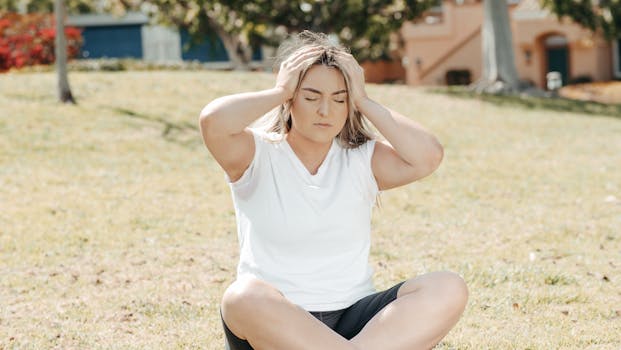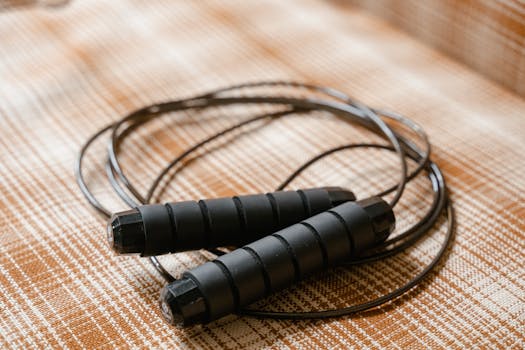Menopause Headaches: Causes, Relief, and Strategies
Nov 21, 2024
Menopause is a natural transition that marks the end of a woman's reproductive years. While this phase brings about various physical and emotional changes, one common complaint among many women is the occurrence of menopause headaches. These headaches can range from mild discomfort to debilitating pain, impacting daily activities and overall quality of life. In this comprehensive guide, we'll explore the causes of menopause headaches, effective relief strategies, and lifestyle modifications that can help you navigate this journey with greater ease.
Understanding Menopause Headaches
Hormonal Fluctuations: The Primary Culprit
One of the primary causes of menopause headaches is the fluctuation of hormones, particularly estrogen and progesterone. During the menopausal transition, the levels of these hormones can fluctuate dramatically, leading to various symptoms, including headaches. Estrogen plays a crucial role in regulating brain chemicals that influence pain perception, and its decline can increase the sensitivity to headache triggers.
As estrogen levels drop, the body's production of inflammatory substances called prostaglandins can increase, leading to inflammation and pain. Additionally, the decline in estrogen can affect the function of serotonin, a neurotransmitter involved in regulating mood and pain perception.
Stress and Emotional Changes: A Vicious Cycle
The menopausal transition can be accompanied by significant emotional and psychological changes. Increased stress levels, mood swings, and anxiety can contribute to the development of menopause headaches. Stress can trigger the release of certain chemicals in the brain, leading to inflammation and increased sensitivity to pain.
Furthermore, the experience of menopause headaches can itself be a source of stress, creating a vicious cycle. The pain and discomfort can lead to frustration, anxiety, and difficulty coping with daily activities, which in turn can exacerbate the headaches.

Relief Strategies for Menopause Headaches
Medication: Temporary Relief
Over-the-counter pain relievers, such as acetaminophen, ibuprofen, or naproxen, can provide temporary relief for menopause headaches. However, it's essential to consult with a healthcare professional before taking any medication, especially if you have underlying health conditions or are taking other medications.
In some cases, your healthcare provider may recommend prescription medications, such as triptans or anti-seizure drugs, to help manage severe or chronic menopause headaches. It's crucial to follow the prescribed dosage and instructions carefully.
Hormone Therapy: Addressing the Root Cause
In some cases, hormone replacement therapy (HRT) may be recommended to help alleviate menopause headaches by stabilizing hormone levels. HRT can be administered in various forms, including pills, patches, or creams. It's crucial to discuss the potential risks and benefits with your healthcare provider before starting HRT, as it may not be suitable for everyone.
Alternative Therapies: Complementary Approaches
Several alternative therapies have shown promise in managing menopause headaches. These include acupuncture, massage therapy, and mindfulness-based stress reduction techniques like meditation and yoga. These approaches can help reduce stress, promote relaxation, and alleviate pain.
Additionally, some women find relief through the use of supplements like magnesium, vitamin B2 (riboflavin), and feverfew. However, it's essential to consult with a healthcare professional before taking any supplements, as they can interact with medications or have potential side effects.
Lifestyle Strategies for Managing Menopause Headaches
Stay Hydrated: Prevent Dehydration-Induced Headaches
Dehydration can trigger or exacerbate headaches. Ensure you drink plenty of water throughout the day to maintain proper hydration levels. Aim for at least eight glasses of water daily, and consider carrying a reusable water bottle with you to stay hydrated on the go.
Additionally, limit your intake of caffeinated beverages, which can act as diuretics and contribute to dehydration. Instead, opt for water, herbal teas, or infused waters with fresh fruits or herbs.
Exercise Regularly: Boost Endorphins and Reduce Stress
Regular physical activity can help reduce stress, improve sleep quality, and promote overall well-being, all of which can contribute to managing menopause headaches. Engage in low-impact exercises like walking, swimming, or yoga to reap the benefits without putting excessive strain on your body. Burning 400 calories daily through exercise can also aid in weight management, which can alleviate headaches.
Exercise has been shown to release endorphins, the body's natural painkillers, and can help reduce stress and improve mood. Additionally, regular physical activity can improve sleep quality, which is essential for managing menopause headaches.

Maintain a Balanced Diet: Fuel Your Body Right
A nutritious diet rich in whole foods, fruits, vegetables, and lean proteins can help regulate hormone levels and reduce inflammation, potentially reducing the frequency and severity of menopause headaches. Avoid processed foods, excessive caffeine, and alcohol, as these can trigger or worsen headaches.
Incorporate foods rich in magnesium, such as leafy greens, nuts, and seeds, as magnesium deficiency has been linked to an increased risk of headaches. Additionally, foods high in omega-3 fatty acids, like fatty fish and walnuts, can help reduce inflammation and potentially alleviate menopause headaches.
Practice Stress Management: Find Your Calm
Stress is a significant contributor to menopause headaches. Incorporate stress-reducing activities into your daily routine, such as deep breathing exercises, journaling, or engaging in hobbies you enjoy. Consider joining a support group or seeking counseling to help manage the emotional challenges of menopause.
Mindfulness practices like meditation and yoga can be particularly beneficial in reducing stress and promoting relaxation. These practices can help you become more aware of your body's signals and better manage the physical and emotional symptoms of menopause, including headaches.
Get Enough Sleep: Prioritize Rest and Recovery
Lack of sleep can exacerbate headaches and contribute to overall fatigue and irritability. Aim for 7-9 hours of quality sleep each night by establishing a consistent sleep routine, creating a relaxing sleep environment, and avoiding screen time before bed. If you're struggling with sleep disturbances, consult with your healthcare provider for guidance.
Adequate sleep is essential for the body's recovery and repair processes, and it can help reduce stress levels, which in turn can alleviate menopause headaches. Consider implementing relaxation techniques before bedtime, such as taking a warm bath or practicing gentle stretching, to promote better sleep quality.
Frequently Asked Questions
What does a menopausal headache feel like?
Menopausal headaches can vary in intensity and presentation. Some women experience mild tension-type headaches, while others report severe, throbbing migraines. Common symptoms include pain on one or both sides of the head, sensitivity to light and sound, nausea, and visual disturbances. The pain may be accompanied by hormonal fluctuations, hot flashes, and mood changes.
How can I stop menopause headaches?
While there is no one-size-fits-all solution, a combination of lifestyle modifications, medication (if necessary), and alternative therapies can help manage menopause headaches. Staying hydrated, exercising regularly, practicing stress management techniques, and maintaining a balanced diet can all contribute to reducing the frequency and severity of headaches. If the headaches persist or worsen, consult with a healthcare professional for personalized treatment options.
What does a hormonal headache feel like?
Hormonal headaches, including those associated with menopause, can present with a variety of symptoms. Some women experience a dull, constant ache, while others report severe, throbbing pain. The headaches may be accompanied by sensitivity to light and sound, nausea, and mood changes. The timing and intensity of hormonal headaches can fluctuate with hormonal shifts during the menopause transition.
What foods are good for menopause headaches?
Several foods may help alleviate menopause headaches due to their anti-inflammatory and nutrient-rich properties. These include leafy greens, nuts, seeds, fatty fish, berries, and whole grains. Foods rich in magnesium, such as spinach, pumpkin seeds, and avocado, can also be beneficial. Additionally, staying hydrated by drinking plenty of water and limiting caffeine and alcohol intake can help prevent dehydration-induced headaches.
Conclusion
Menopause headaches can be a challenging and frustrating experience, but with the right strategies and lifestyle modifications, you can find relief and maintain your overall well-being. By understanding the causes, exploring various relief options, and adopting healthy habits, you can navigate this transition with greater ease and confidence. Remember, every woman's journey through menopause is unique, so it's essential to work closely with your healthcare provider to find the approach that works best for you.
At Getlila, we understand the importance of personalized support during this transformative phase. Our AI-powered personal training solutions offer tailored guidance and strategies to help you manage menopause symptoms, including headaches, while promoting overall health and wellness. With our cutting-edge technology and expert guidance, you can embark on a journey towards a healthier, more balanced life. Get started with Getlila today and experience the power of personalized support in managing menopause headaches and achieving your wellness goals.
Ready to Simplify Weight Loss?
Download the Lila app or visit getlila.com to start your journey. Experience the power of an AI-driven approach designed to adapt to your changing body and unique needs. Embrace holistic weight loss with Lila—because you deserve to feel strong, confident, and truly yourself again.
Disclaimer: This article is for informational purposes only and does not substitute professional medical advice. Consult a healthcare provider for personalized recommendations.
You should not have to do it all on your own











